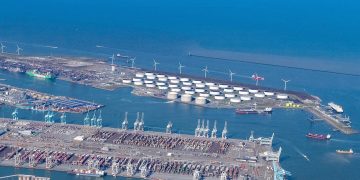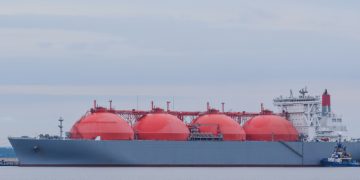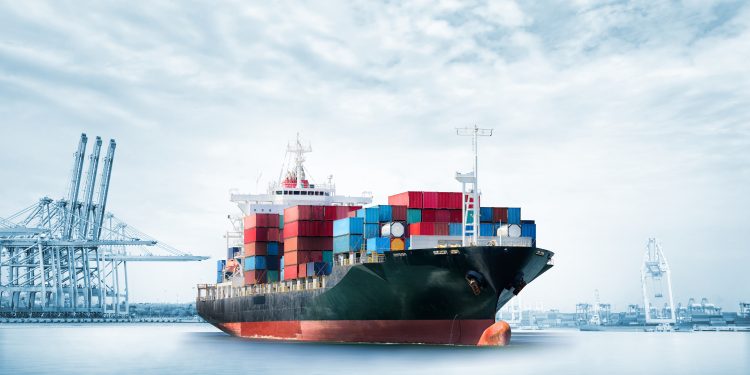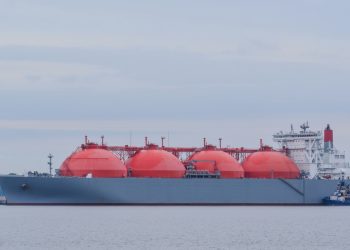Transport & Environment (T&E) published a paper assessing how and to what extent the EU can reduce oil demand through short, medium and long term measures.
The paper quantifies and builds upon the key transport recommendations included within the EU’s REpowerEU strategy, the new EU strategy to boost Europe’s energy independence.
With a raft of short term measures that are achievable and easily implementable this year such as ending fuel duty cuts, aerodynamic fittings on trucks, reducing business air travel and reduction in car use, we find that oil demand could be reduced by 38.8 Mtoe
Measures for shipping
#1 Mandate fuel efficiency of ships in the Energy Efficiency Directive: Shipping fuels will be regulated by the upcoming FuelEU regulation. However, as the regulation only considers fuels and in its current form only requires a 6% reduction in fuel GHG intensity in 2030 compared to a 2020 baseline, half of which will be achieved in Business-as-usual, it misses the significant potential for oil and gas consumption reduction that efficiency measures can make.
RepowerEU gives the EU the opportunity to put fuel efficiency back on the table, given its potential to cut emissions from the shipping sector by 30%. There are several ways to achieve operational efficiency improvements.
Speed reduction is a compelling measure to quickly cut fuel use in the sector. It has been found that a 20% reduction in operational speed would reduce fuel consumption by around 34%, that can be further optimised by more digitalisation of journeys and port capacities.
Other measures include the installation of technology such as propeller optimisation, hull optimisation, and improvements to engines and boilers. This can be achieved by mandating national or regional operational energy efficiency standards that define maximum permissible energy consumption per tonne nautical mile (MJ/t-nm) per ship type and size 44 .
An amendment to the EED should be made to mandate energy efficiency improvements to the entire shipping fleet (new and existing ships) to improve their real-life operational energy efficiency using the data from the EU MRV regulation (2015/757).
We calculate that together, speed reduction and other efficiency improvements could reduce shipping oil demand by 8.8 Mtoe by 2030. Given the projected growth in global shipping, our recommendations would drive absolute reductions in oil consumption by 7.5 Mtoe compared to 2019
#2 More ambition in FuelEU and the shipping ETS: FuelEU is a regulation that sets greenhouse gas intensity targets on the fuel. An uptake of sustainable fuels would be limited to negligent in 2030 in the proposal.
Among other recommendations, T&E suggests advancing the targets by 5 years, so that the 2035 target becomes the 2030 target. Along with a subtarget of 6% for e-fuels, this would save an additional 8.1 MtCO2e per year and cut oil consumption by 2.3 Mtoe in 2030 compared to the proposal.
#3 Shore side electrification: The EU needs to adopt more rapid shore side electrification (SSE) targets than have been proposed by the European Commission in its FuelEU Regulation.
The scope of the current SSE mandate is limited to passenger and container ships only, and is only set to commence in 2030, despite the fact that technology solutions exist today.
To foster the rapid deployment of onshore power supply, which will help cut oil demand, GHG emissions and air pollution, T&E recommends that the FuelEU zero emission berth mandate applies to all passenger ships starting from 2025, and be followed by containerships, tankers and refrigerated-bulk carriers from 2030.
Finally, all remaining ships should be covered by 2035. Compared to the EU’s proposal, T&E’s recommendation would cut shipping oil demand by an additional 0.7 Mtoe in 2025, 1.0 Mtoe in 2030 and 1.3 Mtoe in 2035. This corresponds to additional CO2 savings of 2.3 MtCO2 , 3.2 MtCO2 and 4.1 MtCO2 respectively.
#4 Shipping ETS: The EU ETS will be important as a revenue source to deploy zero-emission fuels and technologies, with yearly revenues expected at around €5.6 billion. Subsidy instruments like carbon contracts for difference (CCfDs) – that pay companies to operate clean technologies at the same price as the conventional technologies – will therefore be important to accelerate the uptake of zero-emission fuels.
T&E estimates show that using the revenues from 10 million ETS pollution allowances (1/10th of shipping’s yearly emissions) for CCfDs would put between 44 and 293 e-ammonia-powered mid-sized containerships (8,000 – 11,999 TEU) on the water, thereby displacing up to 2.3 Mtoe of fuel oil.
#5 Green fuels for shipping: With the exception of ferries direct electrification will not be feasible. Green hydrogen and e-fuels will be needed to provide more energy-dense fuels to replace the use of heavy fuel oil in shipping. The EU should invest and plan a rapid uptake of hydrogen electrolysers and direct air capture (DAC) this decade to ensure sufficient deployment in the 2030s and 2040s.



























































